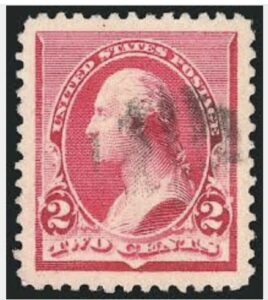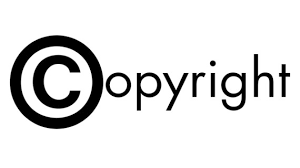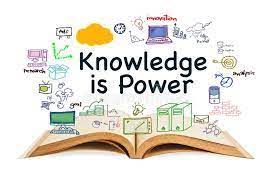There will be two lunchtime sessions on how to play Speculation, the 18th-century card game that we will be playing at the upcoming Friends of the Library event on March 14 (7-9pm). the session will be held in Room 113 on March 1 and March 8 from noon to 1:00. Feel free to bring your lunch. Could be fun…..and then you’ll be an expert at the Friends event.
Category: Professional Development
Web Accessibility Workshop 1:30-3, 2/1
Valerie strongly recommends that anyone attend who creates public facing web content, including but not limited to updating the website, emailing patrons or donors, advertising events, submitting or creating social media content, or creating digital exhibits. Coffee, tea and sweet and savory snacks will be served. All attendees are eligible to win a door prize.
Safety Reminder
Consider incorporating this brief public service announcement when leading a new group of students in library teaching or programming activities…and remember these guidelines for your own safety, too!
Emergencies can happen anywhere and at any time, so it’s important that we take a minute to prepare for a situation in which our safety could depend on our ability to react quickly. Take a moment to learn the different ways to leave this building. If there’s ever a fire alarm or something like that, you’ll know how to get out and you’ll be able to help others get out. Next, figure out the best place to go in case of severe weather – we’ll need to go to a low-level in the middle of the building, away from windows. And finally, if there’s ever someone trying to hurt us, our best option is to run out of the building. If we cannot do that safely, we’ll want to hide somewhere we can’t be seen, and we’ll have to lock or barricade the door if possible and be as quiet as we can. We will not leave that safe area until we get an Oberlin Security message confirming that it’s safe to do so. If we can’t run or hide, we’ll fight back with whatever we can get our hands on.
Oberlin’s Emergency Alert System goes out to students and employees. To verify or update your contact information, go to Update Your Info and follow the instructions. If you have not registered or signed up to access your information in the system, you will need to create a new access account by pressing, Sign Me Up! and following the prompts.
Campus Safety phone: 440 775 8444. Use 911 for emergencies.
Visit Oberlin.edu/campus-safety for more information.
Philatelist extraordinaire, January 10 at 2:00pm in Terrell
Why Does the U.S. Copyright Office Require Libraries to Lie to Users about Their Fair Use Rights?
For all those who lie awake worrying about copyright.
Interesting argument–but also read all the comments, especially those from Melissa Levine, who is a major player in this area.
The United States Copyright Office Notice of Inquiring on AI: A Quick Take
Monday October 30 was the final date for interested parties to submit comments to a comprehensive “Notice of inquiry and request for comments” issued by the United States Copyright Office entitled “Artificial Intelligence and Copyright.” With 34 questions asked about both copyright and technology, some parties responses exceed 100 pages. More than 9,000 responses have been filed.
On the assumption that Library Lowdown readers might be interested in this topic and less interested in reviewing all the responses, I have pasted in the link a selection of questions and answers from Copyright Clearance Center’s (CCC’s) response.
AI and ART
Arcadia Library Lecture: Generative AI & Black Creativity
Wednesday, Nov 29 | Noon–1:00 p.m. | Virtual (Drew University)
Dr. Nettrice R. Gaskins presents this year’s Arcadia Library Lecture, which explores generative artificial intelligence in the arts, how it can be used as part of an artist’s creative practice, and how it can be used to address historical blind spots in digital art based on race and gender. There will be a Q&A at the end of the program.
Dr. Nettrice R. Gaskins is an African American digital artist, educator, academic, and cultural critic. In her work, she explores “techno-vernacular creativity” and Afrofuturism. Dr. Gaskins teaches, writes, “fabs,” and makes art using algorithms and machine learning. She earned a BFA in Computer Graphics from Pratt Institute in 1992, and an MFA in Art and Technology from the School of the Art Institute of Chicago in 1994. She received a doctorate in Digital Media from Georgia Institute of Technology in 2014. Currently, Dr. Gaskins is a 2021 Ford Global Fellow and the assistant director of the Lesley STEAM Learning Lab at Lesley University.
A link will be sent to registrants prior to the program from no-reply@zoom.us. The program will be recorded. A link to the recording will be sent to everyone who registers for the program.
Charleston Conference Observations of Note
I found these observations from the Charleston very insightful. Lisa Hinchliffe is an old colleague from UIUC and part of the Scholarly Kitchen group. Link to full post at bottom.
AI Everywhere – Or, Is It?
Unsurprisingly, AI was the predominant theme. If something wasn’t “our new AI product,” it was AI-powered, AI-enhanced, AI-enabled, AI-driven, AI-supported, etc., etc., etc.! We are high on the hype cycle curve right now, particularly with respect to taglines, marketing, and positioning. What’s unclear though, is what all this AI actually is. Attempts to engage sales staff about what the AI does, how it operates, and why the particular approach was chosen over others got me answers like “it’s an algorithm” and “I’m not really sure but I can have someone follow up with you later.” Now, I appreciate the honesty. But, I also think this was a failure to take advantage of the opportunity to demonstrate that there is real added value from AI and educate customers about how the different approaches to AI will impact research and library collections and services.
Fully OA Publishers Turn to Pure Publish Agreements
Though Pure Publish Agreements have been available for a while now, the fully open access (OA) publishers are increasingly pitching institutional agreements to libraries. Framed as mechanisms for decreasing institutional costs (e.g., discounting list APC prices), increasing equity (e.g., all of an institution’s authors are covered not just those who can pay APCs), aligning spending with values (e.g., investing in full open access), and ensuring compliance (e.g., with OSTP and Plan S), the offerings are attempting to capture library spend and even the playing field with subscription publishers who have been able to use transformative agreements to maintain their market share in the transition from paywalled to open access publishing.
Subscribe to Open Transcendency
Subscribe to Open is on the rise. Learned societies and university presses in particular are leaning in to Subscribe to Open with the recently announced support for the model by Project MUSE, which already has 50 titles committed. There seems to be a sense that this is a no-fail model, which at some level it is, in the sense of preserving the paywall-publishing pathway. But, more than one person was surprised when I observed that this was also the year we saw S2O offerings fail to meet the sustainability thresholds. I think we are going to learn a lot about the application and sustainability of the S2O model in the coming two years, particularly as libraries face continued financial pressures of paying for open access publishing through transformative and pure publish agreements in times of declining budgets.
What Role for the Library with Research Integrity?
After attending the SSP conference earlier this year, where the topic of research integrity dominated the program, I was a bit surprised to see very little in the vendor showcase on research integrity. Are libraries not seen as campus players in ensuring research integrity infrastructure or are there just not many offerings in the market yet?
The danger of this sort of essay is that my experience of the Vendor Showcase is, of course, shaped by my own interests and may be idiosyncratic. I’d love to hear what others took away and the trends they are watching. I invite you to share your thoughts in the comments.
Lyrasis Learning Library
Looking for ways to enhance your professional skills? Thanks to OCL’s Lyrasis membership you can access the Lyrasis Learning Library, which includes collections on Cataloging & Metadata, Digitization, Instruction & Outreach, Leadership & Management, and more.
Follow their instructions to register with your Oberlin email address to access the library. The instructions also include information about how to get member pricing for one of their live classes.
Learn more about the LSP (Library Services Platform–the new term for ILS!) Migration.
It’s coming!
Please make sure you are signed up for the
Ostaff LSP Migration page: monthly email updates are now available under the Updates & Communications tab.
There is also a whole Playlist of Ex Libris product webinars on the Ostaff webinars page.
Knowledge is Power! Calm yourself about the big change by learning more….



